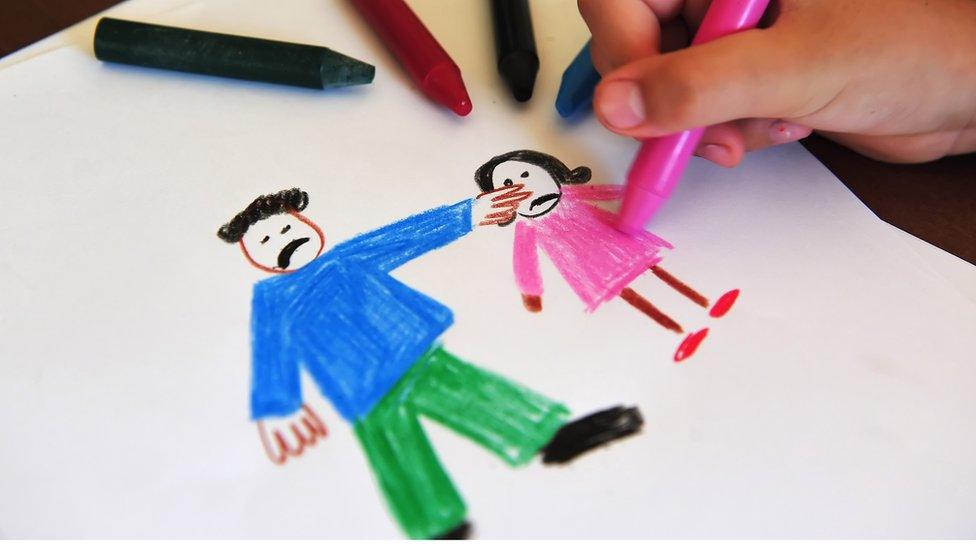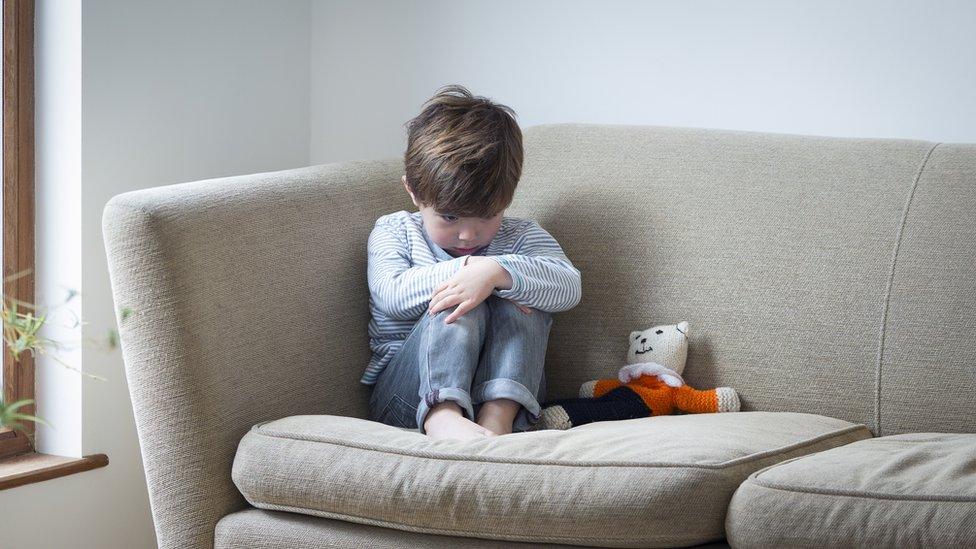Domestic abuse: Focus more on children, says Ofsted
- Published
- comments

"For kids, it is daunting. They come into a refuge, move schools and move again, and move schools again."
A survivor of domestic abuse explains how children's schooling can be disrupted when a family has to move homes because of domestic violence.
Now the watchdog, Ofsted, is calling for greater awareness of how these issues affect children's wellbeing.
In a new report, external it says schools in England must prioritise education about healthy relationships.
It also calls for a new public information campaign to raise awareness of domestic abuse.
Official figures, external suggest domestic-abuse-related crimes accounted for one in 10 of all crimes in 2015-16.
Counselling for abusers 'cuts offending'
Police 'nearly overwhelmed' by abuse
'Soft' signs could indicate child abuse
The Ofsted report acknowledges that domestic violence is a "complex area", with drug and alcohol abuse a common factor in a number of the cases it reviewed.
But it says focusing on the needs and experiences of children is critical.
"A failure to adequately focus on the experiences and needs of children means there is a high risk that the emotional and mental impact of domestic abuse will go unaddressed.
"Children and young people who have lived with domestic violence for several years frequently experience intense feelings of responsibility, guilt, anger and a sense of despair and powerlessness over their lives."

The watchdog says schools have "an essential role" in educating children about domestic abuse.
"Education for children about healthy relationships is already part of the curriculum, but it is often not part of the curriculum that is prioritised by schools," the report warns.
The report also draws attention to those who commit abuse, saying more needs to be done to understand the profiles of the perpetrators.
It says: "There was a notable absence of attention given to the perpetrators of abuse, compared to the victim."
Inspectors raised concerns that victims were being incorrectly held responsible for abuse.
"For example, we saw reports that described an abusive situation as a 'lifestyle choice' and reports stating that victims had learnt to 'make better relationships choices.'"

What is domestic abuse?
A new law of "controlling or coercive behaviour in an intimate family relationship" came into effect in England and Wales in December 2015.
It says: "Any incident or pattern of incidents of controlling, coercive, threatening behaviour, violence or abuse between those aged 16 or over who are, or have been, intimate partners or family members regardless of gender or sexuality.
"The abuse can encompass, but is not limited to: psychological; physical; sexual; financial; and emotional."
Statistics, external suggest that 6.5 million adults in England and Wales have experienced domestic abuse.

Eleanor Schooling, Ofsted's national director for social care, said that while there was a lot of good work being done, more must be done to stop abuse happening in the first place.
"That's why schools have an essential role in educating children about domestic abuse.
"I want to see a new approach to tackling domestic abuse - one which focuses more on prevention and repairing long-term damage to child victims.
"A widespread public service message is needed to shift behaviour on a wide scale."
The Ofsted report inspected six areas: Bradford, Hampshire, Hounslow, Lincolnshire, Salford and Wiltshire.
It was written and researched in conjunction with HM Inspector of Constabulary and the Care Quality Commission.